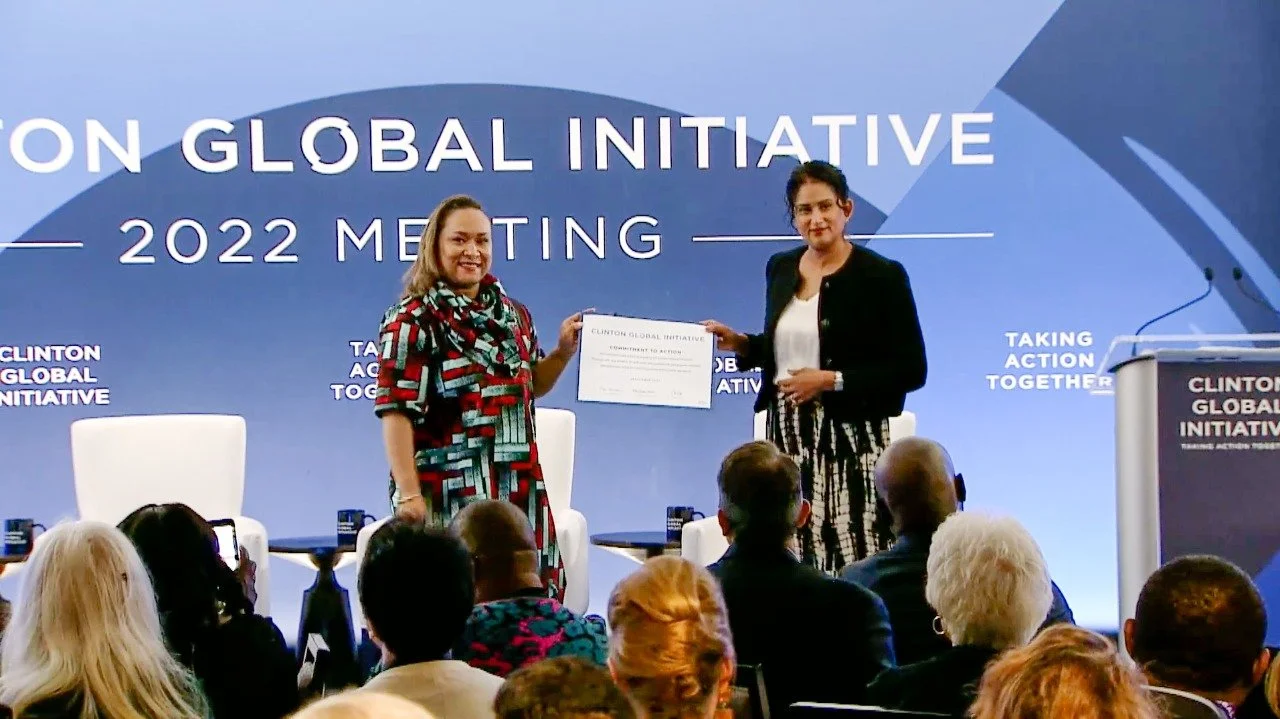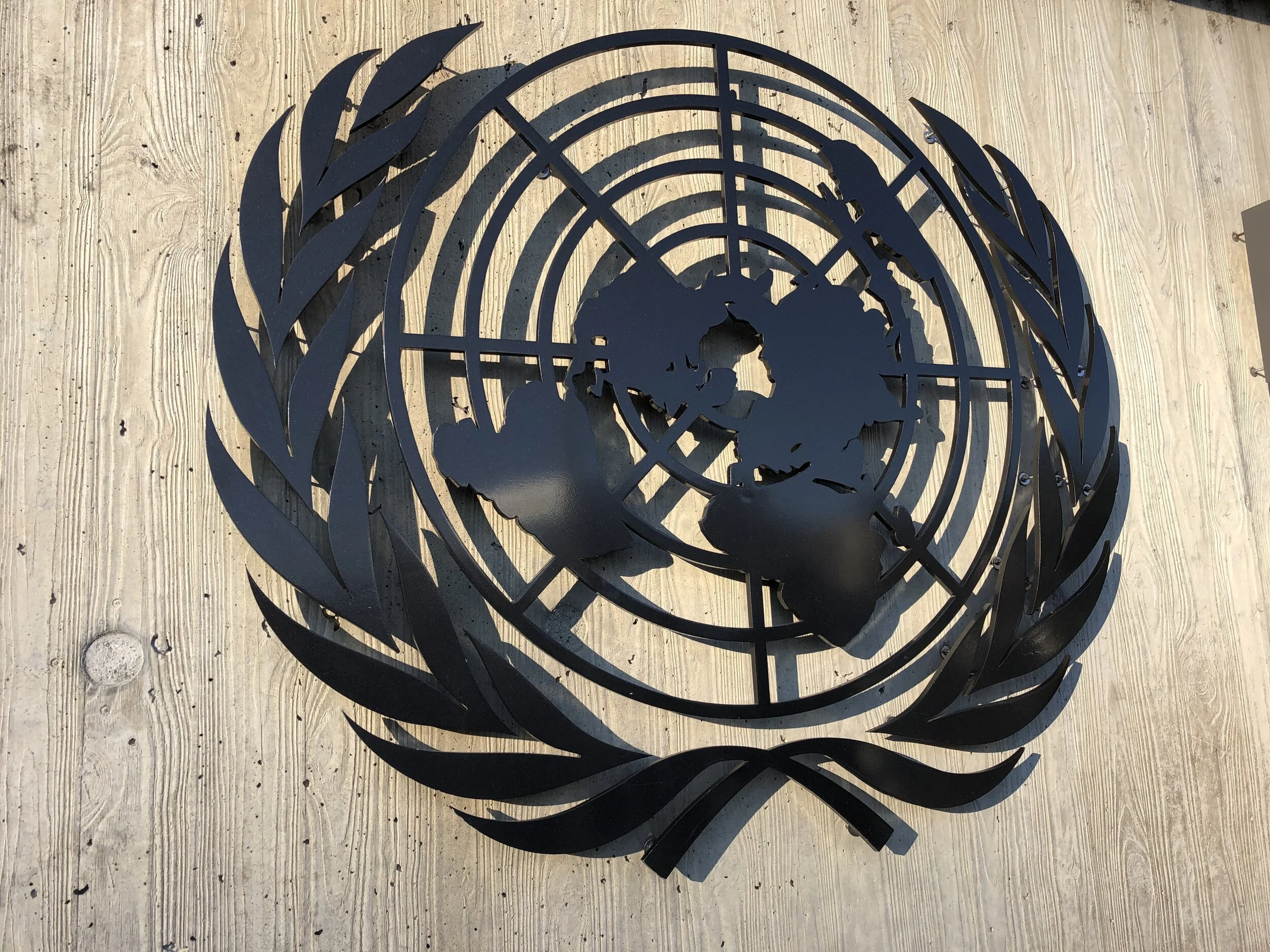Norad-direktøren har mottatt sterk kritikk for å inndele bistanden i tradisjonell fattigdomsorientert bistand og Bistand 2.0, som inkluderer investeringer i globale fellesgoder som også tjener norske egeninteresser. Det kritikerne ikke ser, er at det ene ikke kommer i veien for det andre. Vi har faktisk mye å tjene på å se områdene i sammenheng og på å tenke mer ambisiøst. I denne kritikken går Marie Gabrielsen Jumbert og jeg inn i det vi mener er det virkelige problemstillingen. Og hva vi kan gjøre for å fikse det.
Read MoreToday sees the launch of our new policy volume on Global Public Investment. Produced by colleagues at the Global Public Investment Network, Time for GPI: Leaders and Experts Rethink Development Finance. 50 Essays, features pieces by Thomas Piketty and myself (on GPI and global taxation), along with entries from Mariana Mazzucato, Jayati Ghosh, Saleemul Huq, Mick Sheldrick, Winnie Byanyima and many more. You can download a copy for free from www.globalpublicinvestment.net.
Read MoreAt this year’s Clinton Global Initiative, followed immediately by a side event at the Ford Foundation, we formally launched the Global Public Investment Network. This is the culmination of so much hard work by so many people that it is hard to know where to begin to thank them, except to say that the spirit of co-creation has been at the heart of GPI since its beginnings and long may it continue. …
Read MoreIn this latest in a series of short enquires into work across the humanities and social sciences I sit down with Pamela Clemit, Professor of English at Queen Mary University of London and editor of The Letters of William Godwin (Oxford University Press) …
Read MoreGlobal Public Investment is a new paradigm of International public finance for the 21st Century. It’s an idea - I think - whose time has come, and that a number of individuals have contributed to developing over recent years, myself included. In today’s post I announce the launching of a new Expert Working Group which will take the idea further…
Read MoreIt has been heartening this June to watch the latest Gavi (the Vaccine Alliance) pledging round raise US$8.8 billion, partly in response to Covid-19. It would be more heartening if we didn’t have to live on tenterhooks always, unsure if the goodwill to meet this or that international need will eventually be found. Or whether, as with the US’s denial of contributions to the World Health Organization, it might even be withdrawn. This is the idea behind Global Public Investment…
Read MoreYesterday afternoon I had the pleasure to sit down with Thomas Piketty, Heather Boushey (President and CEO of the Washington Center for Economic Growth) and Martin Sandbu (European Economics Editor at the Financial Times) …
Read MoreIn a co-authored piece with Jonathan Glennie, we ask whether Trump’s freezing of US contributions to the WHO provides the opening for a more radical rethink of international public finance for equality and sustainability.
Read More“In fear of death one commits suicide,” an unenthusiastic wag is supposed to have said of the Saltsjöbaden agreement between workers and employers organisations in Sweden in 1938. Though greeted with suspicion by many on the left at the time, Saltsjöbaden proved to be a defining moment on the path to the Scandinavian welfare state. At times of national and international crisis – and the 1930s were certainly that – cooperation and compromise are rarely a bad idea.
By withholding US funds for the WHO this week, Donald Trump, in fear not of death but of what he does not understand, has initiated an act of collective suicide the like of which is mindboggling to comprehend…
Read MoreOne of the delights of directing the Institute for the Humanities and Social Sciences at Queen Mary in London is the sheer range and depth of discussions I get to have on a daily basis with colleagues and scholars from across the HSS disciplines. As a way of recording this, in April of this year I began a series of short interviews with colleagues about their work and the times we live in - and about what they are reading at present as well. Here I begin the series with Stephen Taylor, geographer and global health specialist…
Read MoreToday – April 07 – is World Health Day: an ironic designation, seen from the present standpoint. In the UK the British Prime Minister, who long delayed a fully scaled-up public response to the Covid-19 crisis, has himself been moved to an ICU
Read MoreFor the past few months I’ve been heavily absorbed in a new role Directing Queen Mary’s Institute for the Humanities and Social Sciences …
Read MoreAs another Winter of Discontent looms, progressives must look to build a more hopeful political spring. That’s why I’ve joined the Up To US campaign as one of its founding supporters. You can read more about the campaign, which features in today’s Guardian, here. For what it’s about, and why it’s important, read on…
Read MoreToday wraps up the annual G-7 meeting in Biarritz. Much has been said and, true to the style of Emmanuel Macron, more still has been left unsaid. But in all the coverage of events, be it yesterday’s surprise visit by Iran’s Foreign Minister or the by-now customary harrumphing of the Anglo hot-heads at the diplomatic table, the basic flaw with the G-7 meetings as global talking shops has gone unremarked. Again.
Read MoreVladimir Putin has challenged liberals to defend liberalism. Liberalism is “obsolete”, Putin stated in an interview this weekend, before his arrival at the G20 in Osaka. Conflating immigration with crime, he insisted that “every crime must have its punishment”. No doubt relishing his timing with respect to Stonewall as much as the G20, he spoke of “core populations” who merited the state’s support. Sexual minorities, by contrast, deserve little more than provisional tolerance of their behaviour. Putin applauded national populists in countries across the liberal democratic west. He supported their upending of the rules-based liberal international order and its domestic counterpart of multicultural national societies. Putin’s rant is a perfect illustration of contemporary anti-liberalism…
Read More50 years ago, in the space of less than a week, the US experienced not only the Stonewall riots (and the birth of the modern gay rights movement) but a further event of historic significance, less remarked upon at the time, and practically forgotten today (at least in public debate). Yet this second event would intersect with the historical trajectory of Stonewall and the rise of social movement politics more broadly during the 1970s, with important implications for American democracy in the years to come. That other event was the swearing in of Warren Burger, a committed homophobe, as the new Chief Justice of the Supreme Court of the United States. Burger’s election was triply significant…
Read MoreIt’s two weeks to launch day and Empire of Democracy is now available for pre-order. It’s been a long road to get here. In 2011 I set out to write a book that I was desperate to read but that didn’t exist: a one stop history of the West in the present age. That book now exists and is about to release on June 25th (US) and June 27th (UK). So how do you write a history of the post-Cold War age…?
Read MoreIf local surgeries were run like a modern British university you would soon, quite rightly, take your health problems elsewhere. A visit to your local GP would find a forlorn and overworked figure, busily rescheduling their own appointments because patients kept cancelling on them, wondering when your own appointment would be over so they could get back to their real tasks for the day: ranking colleagues for a mock General Practitioner assessment exercise (in advance of a national exercise next year); designing a strategy to increase patient numbers (perhaps by offering out of hours services?); and thinking how to sugar coat the salary savings the local Health Trust have insisted be found by middle management (refusing any increase for another year looks like a good bet). This evening they may (or may not) get to keeping abreast of medical knowledge in their field. The sad thing is that modern British Universities really are run a little like this. We are a long way indeed from the days when Harold Wilson could proudly declare the Open University (our first “university of the air”) open for the provision of quality and affordable education in a modernising democracy…
Read MoreToday I attended the launch of round two of the Norwegian Centre for Humanitarian Studies in Oslo. There are now over half a million humanitarian professionals and between 2,500 and 4,500 organisations…
Read More



















